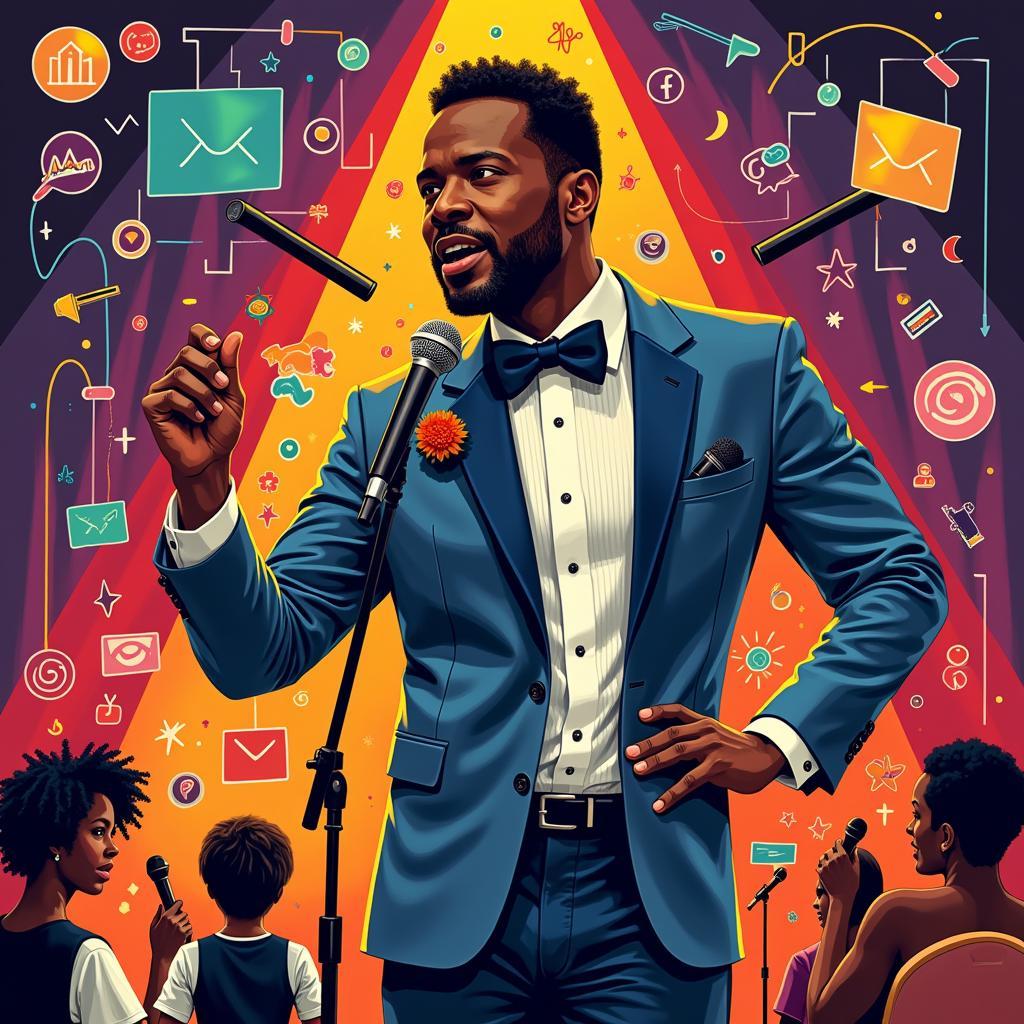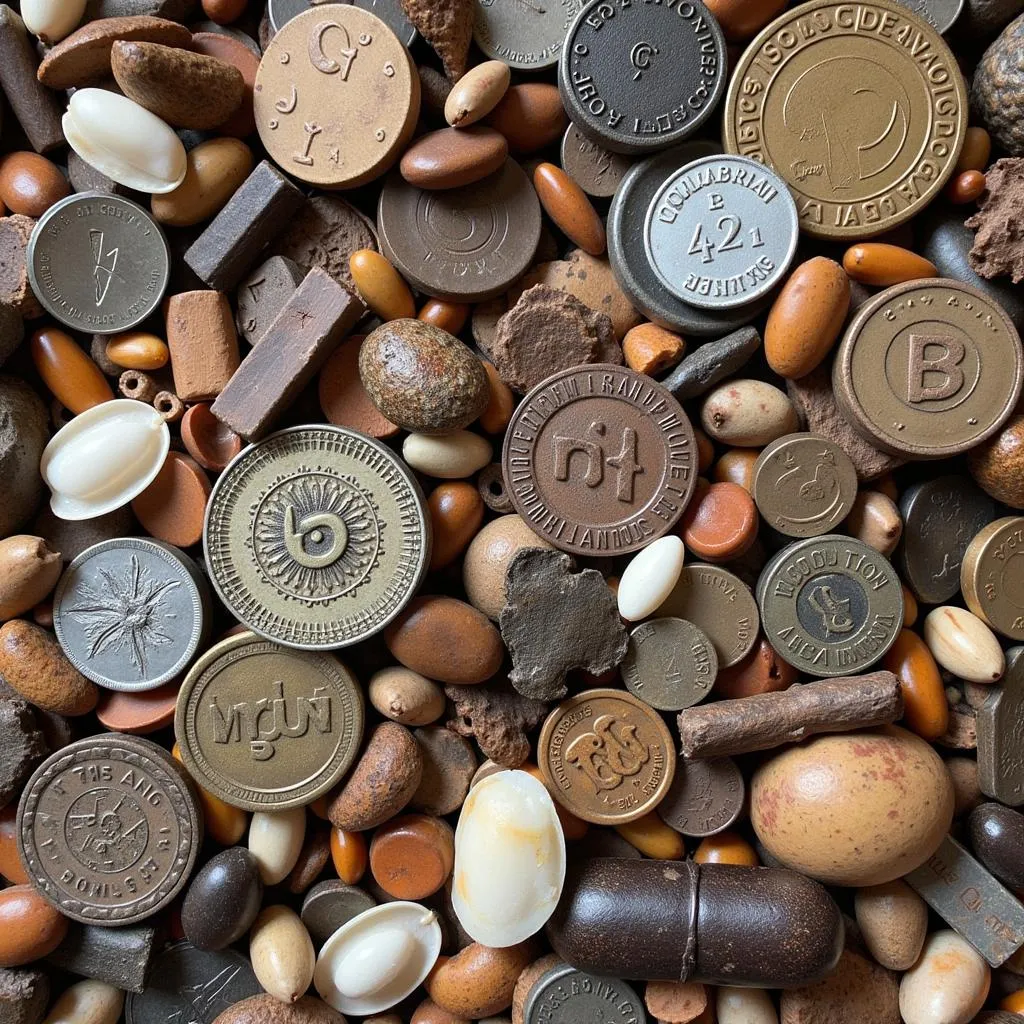The Evolution of African American Stand-Up
African American stand-up comedy has a rich and complex history, deeply intertwined with the social and political landscape of the United States. From its early roots in minstrelsy to its current vibrant and diverse scene, it has served as a powerful platform for social commentary, cultural expression, and challenging the status quo. This evolution reflects not only the changing times but also the enduring power of humor as a tool for both entertainment and empowerment. We’ll explore this journey, examining the key figures, trends, and societal impacts that have shaped African American stand-up into what it is today.
The early forms of African American stand-up often found expression in minstrel shows, a painful reminder of a racist past. However, even within these restrictive confines, Black performers found ways to subtly subvert expectations and inject their own perspectives. The transition to vaudeville provided more opportunities, although racial prejudice remained a constant barrier. Performers like Bert Williams, despite achieving immense popularity, still faced the sting of segregation and discriminatory practices. Even so, these early pioneers laid the groundwork for future generations.
Breaking Barriers: The Pioneers of African American Stand-Up
The mid-20th century saw the emergence of groundbreaking comedians who directly addressed racial issues and challenged societal norms. Dick Gregory, with his sharp wit and insightful observations, used humor as a weapon against racial injustice. Redd Foxx’s raw and unfiltered style resonated with audiences, pushing boundaries and paving the way for more explicit comedic expression. Moms Mabley, with her grandmotherly persona, delivered poignant social commentary disguised as folksy wisdom. These comedic trailblazers used their platforms to amplify Black voices and shed light on the realities of racism in America, paving the way for future generations to speak their truth through laughter. This link highlights a list of African American stand-up comedians list.
From the Chitlin’ Circuit to Mainstream Success
The “Chitlin’ Circuit,” a network of venues that catered to Black audiences during segregation, played a crucial role in nurturing African American comedic talent. It provided a space for comedians to hone their craft, develop their unique voices, and connect with audiences who understood their experiences. This vital incubator fostered a distinct style of comedy, often raw, relatable, and deeply rooted in the Black community’s shared experiences. It also launched the careers of countless comedians who later transitioned to mainstream success.
The Rise of Social Commentary in African American Stand-Up
Social commentary has always been a cornerstone of African American stand-up. From Richard Pryor’s searingly honest reflections on race and class to Whoopi Goldberg’s character-driven monologues, comedians have used humor to dissect social injustices and challenge the status quo. This tradition continues today with comedians like Dave Chappelle and Chris Rock, who tackle complex issues with wit and intelligence, sparking conversations and provoking thought. African American stand-up is more than just entertainment; it’s a powerful form of social commentary that continues to shape our understanding of race, identity, and the world around us. For more insights into the complexities of African American identity, explore the link discussing the African American minority group.
“Comedy is truth. It’s the truth about the human condition,” says Dr. Aisha Kenyatta, Professor of African American Studies at the University of California, Berkeley. “African American comedians have always understood this, using humor to illuminate uncomfortable truths and challenge societal norms.”
The Influence of African American Stand-Up on Popular Culture
African American stand-up has profoundly impacted popular culture, influencing everything from television and film to music and fashion. The comedic styles and themes explored by Black comedians have permeated mainstream entertainment, shaping the comedic landscape and inspiring new generations of artists. From Eddie Murphy’s electrifying performances on Saturday Night Live to the rise of stand-up comedy specials on streaming platforms, African American comedians have consistently pushed creative boundaries and redefined the art form. This has created more diverse representation in the media and broadened the range of voices and perspectives we hear.
The Future of African American Stand-Up
The future of African American stand-up is vibrant and full of potential. A new wave of talented comedians is emerging, bringing fresh perspectives and pushing the boundaries of the art form. These comedians continue to use humor as a tool for social commentary, cultural expression, and challenging conventional wisdom. They are embracing new platforms and reaching wider audiences than ever before. The enduring legacy of African American stand-up continues to evolve and inspire, promising a bright future for this dynamic and influential art form. If you’re curious about interracial relationships within the African American community, you might find the topic of African American and Indian couples interesting.
 The Future of African American Stand-Up Comedy: Emerging Voices and New Platforms
The Future of African American Stand-Up Comedy: Emerging Voices and New Platforms
“The beauty of stand-up is its immediacy,” observes Kevin Washington, a prominent comedy club owner in Atlanta. “It’s a direct conversation between the artist and the audience. African American comedians have mastered this art of connection, using humor to bridge divides and build understanding.”
African American stand-up, from its challenging beginnings to its current flourishing state, is a testament to the power of humor to entertain, educate, and empower. It has played a crucial role in shaping our cultural landscape and continues to be a vital force for social change. As we look to the future, we can expect even greater innovation and impact from this dynamic and ever-evolving art form. And for those interested in the topic of family structures, the link about the African American married couple provides further reading.
FAQ
-
What is the Chitlin’ Circuit?
The Chitlin’ Circuit was a network of performance venues throughout the Eastern, Southern, and Midwestern United States that catered to African-American audiences during the era of segregation in the United States. -
Who are some key figures in the history of African American stand-up?
Key figures include Dick Gregory, Redd Foxx, Moms Mabley, Richard Pryor, Whoopi Goldberg, Dave Chappelle, and Chris Rock. -
How has African American stand-up influenced popular culture?
It has influenced television, film, music, fashion, and the broader comedic landscape. -
What is the future of African American stand-up?
The future is vibrant, with emerging comedians bringing fresh perspectives and using new platforms. -
Where can I find a list of contemporary African American comedians?
You can find a helpful list by searching online for “African American stand-up comedians list”. -
What role has social commentary played in African American stand-up?
Social commentary has always been central, using humor to address injustice and challenge societal norms. -
What are some resources for learning more about the history of African American stand-up?
Books, documentaries, and academic articles offer valuable insights into this rich history. You can also explore topics related to African American haplogroups.
For further information on African cultures, you can explore articles about other topics on our website.
When you need assistance, contact us 24/7 at Phone: +255768904061, Email: [email protected] or visit us at Mbarali DC Mawindi, Kangaga, Tanzania.
